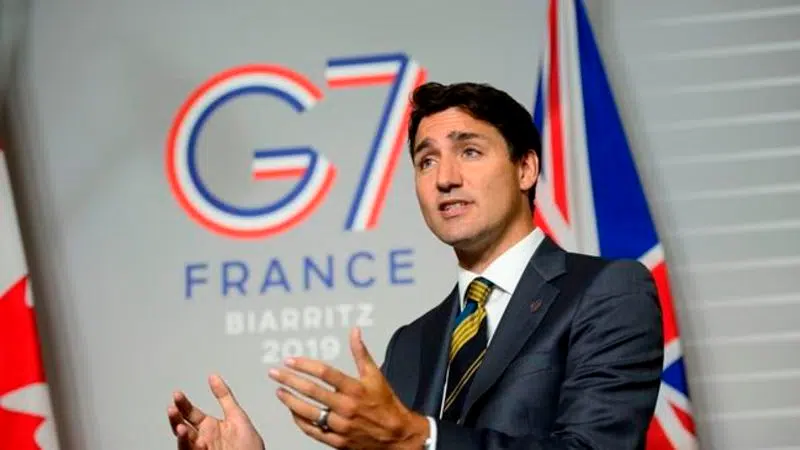
Trudeau to meet with U.K. and Japanese prime ministers ahead of G7 summit
BIARRITZ, France — As leaders of the now-fractious Group of Seven countries gathered in France on Saturday, even the weather seemed divided.
Beams of sunlight cut through dark clouds as the G7 leaders paraded in for a greeting from French President Emmanuel Macron at the launch of this year’s summit, which is expected to be driven by debates over the merits of free trade and nationalism.
European Council President Donald Tusk set the stage early Saturday urging the Group of Seven leaders to find common ground, especially on issues of security and trade, warning that trade wars “will lead to recession” — one day after a Twitter tirade against China by the U.S. president that sent investors running for cover.
The spectre of Donald Trump’s scorched-earth style loomed large as Tusk acknowledged the mounting tension among G7 nations in recent years as they seek common ground at a time when greater co-operation was never more important.


